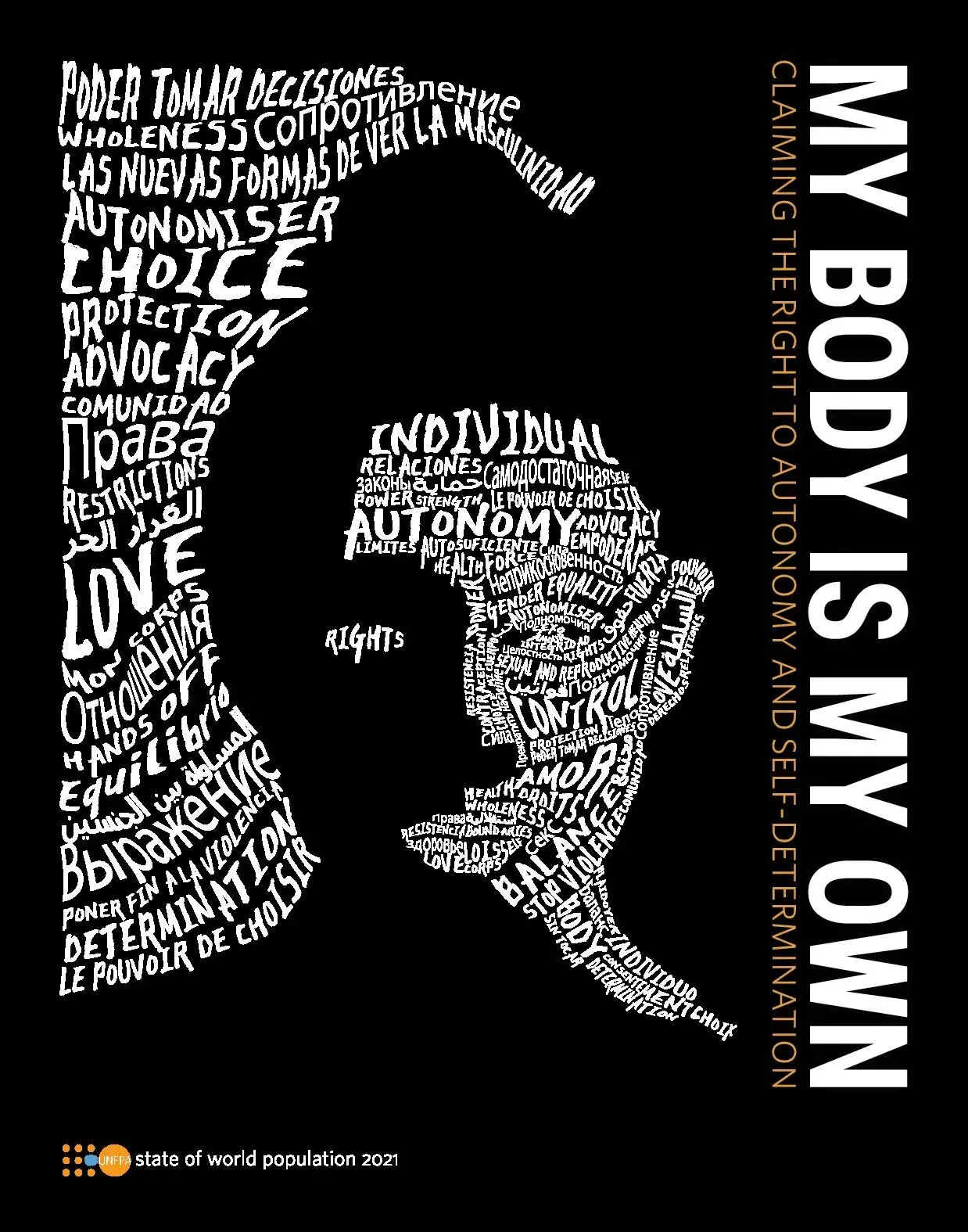Somewhere today at this moment…
…an adolescent girl is waking up. She’ll discover she is expected to undergo a rite of passage,
forever to be wounded by female genital mutilation.
…another girl is being told to get dressed because today will be her wedding day. She’s
scarcely 13 years of age.
…and a woman has been walking for a couple of hours to her village health centre to seek
contraception. When she arrives she’ll be sternly informed that there will be no prescription
without her husband’s consent.
All around the world, women and girls are not in control over their bodies and their lives.
Yet, women have a right to make their own decisions about their bodies.
Yet how many women can actually claim they have the power to exercise that right?
The new UNFPA State of World Population report shows that, in countries where we have data,
nearly half of women lack the power to make their own decisions…
...About whether to have sex with their partner.
...About whether to use contraception.
...And about whether to see a doctor.
Often these decisions are made or influenced by others, whether partners, families, societies or
even the government.
The right to the autonomy of our bodies means that we must have the power and agency to
make choices, without fear of violence or having someone else decide for us.
Intertwined with it is the right to bodily integrity, where people live free from physical acts to
which they do not consent.
For many people, but especially women and girls, life is fraught with violations to their bodily
autonomy and integrity.
1
We see this when a lack of contraceptive choices leads to unplanned pregnancy.
We see this in the terrible bargain made to exchange unwanted sex for a home and food.
We see this in life-derailing practices such as female genital mutilation and child marriage.
Autonomy is violated when people with diverse sexual orientations and gender identities cannot
walk down a street without fearing assault or humiliation, or when people with disabilities are
stripped of their rights to self-determination, to be free from violence, to enjoy a safe and
satisfying sexual life.
Some violations, such as rape, may be criminalized but not always prosecuted. Other violations
go unchallenged because they are reinforced by community norms, practices and laws.
The right to bodily autonomy is violated when a husband or partner forces a woman to have an
abortion or impregnates her against her will.
Bodily autonomy is violated by practices like…
...so-called “corrective rape”...,
...so-called “honour killings”...
...and so-called “virginity tests.”
This list goes on and on.
And what was bad has become worse, now with the COVID-19 pandemic, which has further
diminished women’s autonomy by increasing sexual violence, new barriers to health care,
unplanned pregnancies, and job and education losses.
Although there are many impediments to bodily autonomy, gender inequality is perhaps the
most insidious and pervasive one.
Gender-unequal norms and attitudes lead to power imbalances in relationships that restrict
women’s decisions, particularly when it comes to sex and pregnancy, or that drive the
expectation that women must defer to their husbands or partners in all aspects of their lives.
Real, sustained progress therefore depends on uprooting gender inequality and all forms of
discrimination, and transforming the social and economic structures that maintain them. In this,
more men must become allies. Many more men should commit to stepping away from patterns
of privilege and dominance that profoundly undercut bodily autonomy.
While a bold goal, gender equality is also an internationally agreed one, as the fifth Sustainable Development Goal, and as the purpose of the Beijing Declaration and Platform for Action, the 25th anniversary of which we are observing this year. All countries can do more to achieve gender equality, since no country is there yet Governments have a lead role to play in reaching that goal. By fulfilling their obligations under human rights treaties, such as the Convention on the Elimination of All Forms of Discrimination
against Women, or CEDAW, and the Convention on the Rights of the Child, governments can alter the social, political, institutional and economic structures that reinforce and thrive on gender-unequal norms. Bodily autonomy is a foundation for the enjoyment of all human rights, including the right to health and the right to live free from violence. Institutions and leaders are therefore obligated to extend all the support and resources required for us to carry out our choices in a meaningful
way. But we must look beyond obligations, to opportunities: A woman who has control over her body is more likely to be empowered in other spheres of her life. She gains not only in terms of autonomy, but also through advances in health and education, income and safety. She is more likely to thrive, and so is her family. When we see these benefits accrue across whole societies, we understand that communities and countries will flourish when all people are empowered to make their own informed decisions
about their bodies and futures. Realizing autonomy will help us realize a world of greater justice and human well-being, which benefits us all.
Who we are
What we do
State of the World Population 2021

Publisher
UNFPA
Number of pages
164
Author
UNFPA
State of World Population Report
State of the World Population 2021
Publication date
27 April 2021


